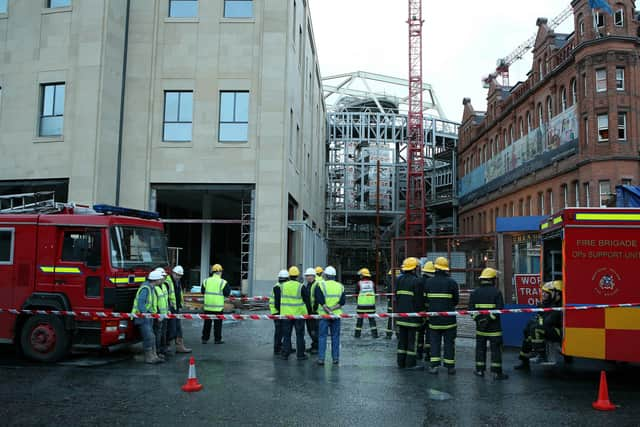Presbyterian Synod of Belfast’s support for fireman’s stand (1962)
and live on Freeview channel 276
In September 1961, the fireman had told the authority that he objected to Sunday trainIng on grounds of conscience. The Reverend Alfred Martin, Finaghy, told the Synod that the offer appeared to be an attempt to take the “micky” out of the man who “dared to take such a stand”.
“If the Banbridge Presbytery was right at the outset in backing this man, believing him to be acting in accordance with the principles and practice of the Presbyterian Church, their successors and this Synod is involved.
Advertisement
Hide AdAdvertisement
Hide Ad“We are not going to stand by and let a man be punished unmercifully when he respects our church’s teaching and obeys God rather than man,” he said.


A resolution, proposed by Mr Martin and seconded by Dr J C Breakey, called upon the Fire Authority, government departments and all employers of labour “to refrain from further encroachment upon Sunday, the day of rest and worship, except in cases of national emergency or mercy”.
The resolution, which was passed, pointed out that the Synod was “not unaware of the difficulties involved in exempting some form of Sunday labour”.
Ulster people and ‘the wee folk’
Broadly speaking, the people of Britain and Ireland were not consciously tourist minded, Mr R J Frizzell, general manager of the Northern Ireland Tourist Board, told the Young Ulster Society.
Advertisement
Hide AdAdvertisement
Hide AdHe said: “Ulster people either laugh, smile or jeered at references to the ‘wee folk’, the fairy thorn and wishing wells. Tourists loved such things. They thoroughly enjoy friendly encounters with talkative and well-informed locals. They were astonished that every native does not know about the local churches, round towers, abbeys and other ancient monuments,” said Mr Frizzell.
Was it possible, he asked, that Ulster folk were too “self-conscious about being interested in such things and willing to sacrifice all other standards for modern conceptions and interpretations?”
He added: “Ulster people do not appear to value greatly or protect assiduously the colourful parts of their history, the few items of pageantry and their vagaries. These are some the materials writers sought when they visit Ulster.”
Comment Guidelines
National World encourages reader discussion on our stories. User feedback, insights and back-and-forth exchanges add a rich layer of context to reporting. Please review our Community Guidelines before commenting.